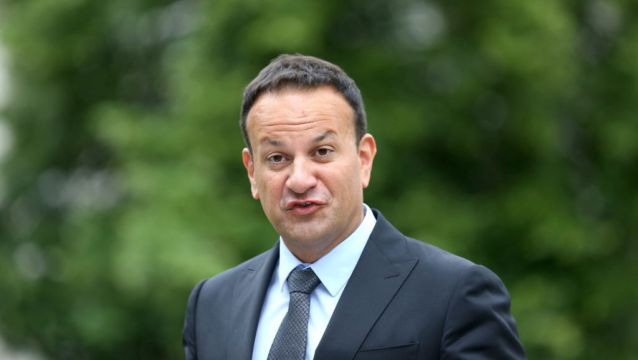Tánaiste Leo Varadkar has said that while the Government does not have any plans for interventions prior to Budget Day, he could not “definitively rule out” any action.
If there were a “dramatic escalation” in fuel prices then the Government would have to intervene, he told RTÉ radio’s Morning Ireland.
Planning was ongoing towards the budget in the autumn which would include immediate measures to assist the public and ensure the country did not slip back into recession, he added.
Contingency plans
In response to comments by European Commissioner Mairead McGuinness who warned about the possibility of fuel rationing in the future, Mr Varadkar said that the Government had contingency plans in place.
The problem at present was the price of fuel not supply. There was a 90-day reserve which would provide a cushion.
The Tánaiste also explained why the Government was going ahead with a pay increase of up to 15 per cent for top-earning public servants, including judges, hospital consultants and many senior public officials. The move affects some 4,000 public servants earning in excess of €150,000 and will apply from next week.
Pay restoration is the last phase of the unwinding of pay cuts imposed on public servants during the financial crisis, 10 years ago, he explained. The restoration date, which is July 1st, was set in legislation in 2017.
The Government sought legal advice about the possibility of deferring the increase, but was cautioned that it would be difficult to justify a deferral in court.
Pay talks
Mr Varadkar said he was hopeful that a pay agreement for the public service in general could be agreed in talks at the WRC. It was the Government’s intention to “re-engage” and to make further offers. These workers who “work very hard to look after us very well” were deserving of pay increases, he added.
There would be three elements of any agreement to ensure maximum benefit including tax reform, the social wage (how much people take home) and reducing costs such as childcare. “We do want an agreement.”
The cost of childcare in Ireland at present was “so out of line” and needed to be addressed by way of better pay and conditions for staff in the sector, significantly lower fees for parents and higher standards, he said.
The National Childcare Subsidy would do that and would benefit more people rather than tax breaks which tended to benefit higher paid people more.
Any benefits should be universal, those who need it the most, should benefit the most, he said.







